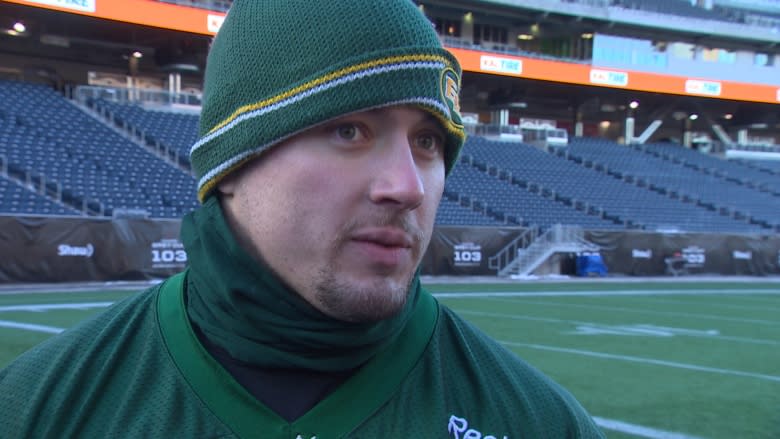Edmonton Eskimos must change offensive name, Inuit leader says
There are growing calls for the Edmonton Eskimos to change their name.
On Friday the Ottawa Citizen published an editorial calling the name offensive to Canada's indigenous community.
On Sunday the Eskimos play the Ottawa Redblacks in Winnipeg for the Grey Cup, the Canadian Football League championship.
Natan Obed, president of Inuit Tapiriit Kanatami, the national Inuit organization, says the term is derogatory and symbolizes colonial policies. He said the team needs to change its name.
"If I was called an Eskimo or introduced as an Eskimo by anyone else, I would be offended by that," he said. "It is something that was acceptable at one time but now just isn't.
"It's time for the team to change its name. And it's time also for all sports teams to change their names if they continue to use indigenous people as their mascots."
It doesn't appear that will happen soon, though. A spokesman for the Edmonton Eskimos said the organization has no plans to change the name.
CFL commissioner Jeffrey Orridge didn't appear eager to discuss the issue when approached by CBC News at a Grey Cup event in Winnipeg.
Relic from the past
"The team has focused on diversity its entire history," Orridge said.
"And they have a great relationship, as I understand it, with the native Canadian community. I don't know anything more about that [other] than the Eskimos organization and the incredibly progressive and incredibly substantial people there."
However, Eskimos linebacker J.C. Sherritt thinks the issue may be worth discussing, especially in light of the controversy over the name of Washington's team in the National Football League.
"I know the Redskins name back home is something that is constantly talked about and needed change," he said.
"When things like that happen, conversation is always a good thing and if we need to talk about it we'll talk about it."
Obed says it's a conversation that should happen. He played junior hockey and was a member of a hockey team in university, so he understands how fans can be passionate about a team name. But he hopes society can move beyond a term that is a relic from the past.
"I think we can have this discussion without having an uproar about being overly politically correct or trying to defame a proud organization," he said.
"I think we just have to talk about what is right in 2015 for the relationship between the indigenous people of Canada and the non-indigenous portions of our population."



